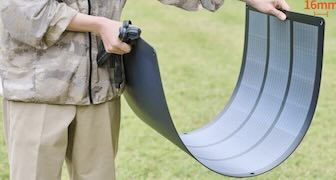Oct 21 (NHK) - A group of researchers says it has found traces of noble gases on sand and other asteroid samples brought back by a Japanese space probe.
The discovery was made by a team that includes Okazaki Ryuji, an associate professor at Kyushu University.
The team analyzed samples in an airtight cylindrical capsule fitted to Hayabusa2. The samples were collected from the asteroid Ryugu, about 300 million kilometers away.
The team says it detected tiny amounts of noble gases such as helium and neon that are extremely rare in the Earth's atmosphere.
It says it believes that the gases were originally emitted by the sun onto the asteroid and released when sand or other substances rubbed against each other. ...continue reading
Source: 日テレNEWS















